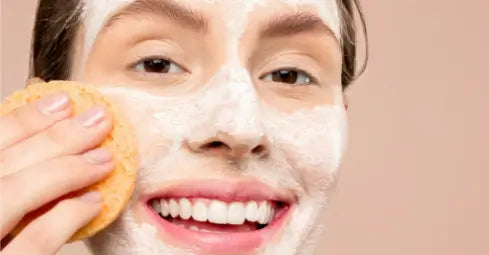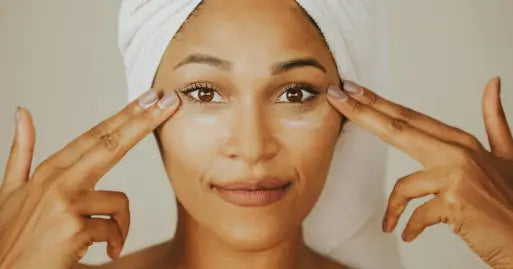You may have heard of parabens, phthalates, and SLS as many beauty brands are actively banning them from their products, but the reasons behind this can sometimes be vague. Here, we look at what parabens, phthalates, and SLS are, if they are dangerous, and how you can avoid using skin and hair care products that contain them.
What are parabens?
Parabens are a preservative that have been used since the 1950s to prolong the shelf lives of everything from food and pharmaceuticals to skin and organic hair products. Through adding parabens to products, manufacturers can ensure that they last longer than natural alternatives as they help to prevent the growth of bacteria and mould which can develop over time. However, the benefit of being able to keep your beauty products in your bathroom cabinet for months won’t necessarily outweigh the fact that parabens can be bad for your health.
Are parabens dangerous?

What are phthalates?
Phthalates are chemicals that are used to give plastic products, such as toys and vinyl flooring, elasticity to prevent them from breaking or cracking. However, they are also commonly used in cosmetics to give them a more desirable texture. For example, they help lotions to cling to the skin for longer, and give hairspray its stiff feel. Also known as plasticizers, phthalates were originally introduced in the 1920s, when they were used in products such as insect repellents and cosmetics.
Are phthalates dangerous?

Although there hasn’t been a great deal of research carried out on the impact of phthalates on humans, they are believed to have a negative effect on the endocrine system. This can lead to developmental and reproductive problems. These include lowering sperm count, causing infertility, an increased risk of breast cancer, and even miscarriage. Due to the risks associated with parabens, the EU have tightened restrictions and banned the use of many common parabens in countries within the European Union when it comes to regulating cosmetics. However, this is not the case in the USA where the use of parabens in beauty products is still widely spread.
How do I avoid phthalates in my cosmetics?

Once again, the best way to avoid cosmetics that contain phthalates is to read ingredient labels very carefully. All phthalates will have the word ‘phthalate’ in them, such as dibutyl phthalate or diethyl phthalate, so they are easy to spot. In addition to this, you should avoid skin and hair care products that have ‘fragrance’ listed as an ingredient. This is because manufacturers can add ‘fragrance’ to the list without specifying what’s in it - and fragrances very often contain phthalates. With that in mind, choosing organic products with natural scents is far safer.
What is SLS?
Another nasty that you might find in your beauty products is SLS. Sodium Lauryl Sulfate is a foaming agent and is often used in shampoos and soaps because it creates a lather. It also works as a surfactant - which means that it traps dirt and makes it easier to wash away. This foamy lather might feel like it’s doing wonders for your hair and skin while you’re in the bath or shower, but the truth is that it could be having a negative impact on the health of your skin.
Is SLS dangerous?

Many people avoid beauty products which contain SLS as it can penetrate the eyes and skin tissue which causes uncomfortable irritation. In addition to irritation, SLS can cause rashes on the skin, hair loss, and trigger reactions, such as eczema, psoriasis or dermatitis, making it an ingredient to avoid. SLS also strips oils and moisture from the skin’s natural barrier, leaving it vulnerable to external factors, and will cause dryness which leads to itchy, flakey skin. In particular, those with sensitive skin should avoid cosmetics that contain SLS as it can block pores and cause acne.
How do I avoid SLS in my cosmetics?
Cosmetics containing SLS can be easily avoided through reading the labels of your beauty products before you buy them. You can also aim to purchase organic, natural products as SLS is not a natural ingredient. You’ll often know if a product contains SLS as it will foam as you use it, so always be extra aware when checking hair and skin care products that you’d expect to form a lather - such as shampoos and shower gels.
Now that you know what parabens, phthalates, and SLS are, you can work towards avoiding them through choosing natural products. Browse our organic, cruelty-free collections today and you can be confident that you’re purchasing products that will only have a positive impact on your skin and hair. You might also like to find out more about chemicals in skincare and switching to organic products so that you know that you’re making an informed decision.



